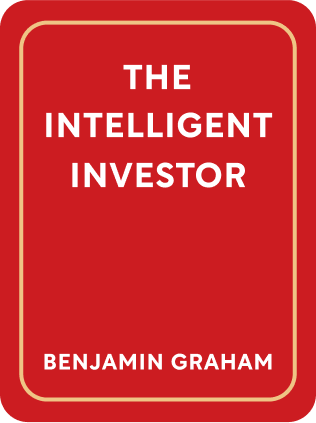

This article is an excerpt from the Shortform book guide to "The Intelligent Investor" by Benjamin Graham. Shortform has the world's best summaries and analyses of books you should be reading.
Like this article? Sign up for a free trial here .
What is the aggressive investor definition? What are the philosophies and best practices of aggressive investors?
The aggressive investor definition is investors who methodically look for potential investments and practice patience and level-headedness. Aggressive investors research, wait and plan for the best payoff.
Read more about the aggressive investor definition below.
The Aggressive Investor Definition
The aggressive investor definition is straightforward. In contrast to defensive investors, who want to minimize time and get acceptable results, aggressive investors want to devote serious time to investment research to achieve better returns than average.
When describing these investors as “aggressive,” Graham is not urging any carelessness or impulsiveness, despite general connotations of the term “aggressive.” In stark contrast, aggressive investors should methodically value potential investments, be patient for bargains, and maintain level-headedness when the market is reactive in either direction.
(Shortform note: Graham uses the terms “enterprising investor” and “aggressive investor” interchangeably—we use “aggressive” since it’s the more well-known of the two terms.) Read more about the aggressive investor definition and strategies.
Expectations
To be successful as an aggressive investor, you must devote your full effort and attention to the task. You should view your investing as equivalent to operating a full business—just as you can’t be half a business operator, you can’t be half an aggressive investor and half a passive investor.
Since most people can’t put in this effort, they should become defensive investors instead.
Expected Gains
How much in gains should a successful aggressive investor expect? The author says that an additional 5% per year, before taxes, is necessary to be worth the effort of all the research and work. (Shortform note: Graham notes repeatedly that good investors should not aim for stratospheric results, but rather modest and consistent returns over the long term. Due to compounding returns, an extra 5% a year makes a huge difference over time.)
A Warning from Graham on The Aggressive Investor Definition
The task of beating the market is a difficult one, and Graham issues a caution—the evidence strongly suggests that most professional money managers do not beat the overall market in the long term, after deducting fees. These funds employ highly intelligent and motivated people who dedicate their entire working days to researching and choosing individual securities. Yet even they can’t outperform the S&P 500.
Why is it so difficult to beat the market? Graham offers two possible reasons:
Reason 1: The current stock price already has all existing information “priced in,” and from this point stock market movements are essentially unpredictable.
There are countless opportunistic investors and investment firms that behave like an aggressive investor—they study a company’s historical performance and future prospects, try to identify bargains and overpriced stocks, and invest accordingly. When the market is made up of many thousands of such people, the market price for a security already reflects the consensus opinion of the company’s value.
From this point on, any developments that affect stock price are unpredictable. When you try to predict the unpredictable, your chances of succeeding in the long term are slim.
Reason 2: Most investors have a bad strategy. If you adopt a non-consensus strategy, you might be able to beat them.
Most money managers might have a consistent problem in how they make investments. For instance, they might believe that a promising company’s stock is worth buying, no matter how high the price. They might also believe that certain industries and companies are toxic wastelands to be avoided, no matter how low the price.
In practice, no company’s stock price rises perpetually, and many companies that have fallen into temporary misfortune recover company performance and stock price.
If most traders in the market believe such ideas, then there can exist opportunities that are ignored by the rest of the market. Graham’s personal record as a consistently successful investor, as well as the records of his students such as Warren Buffett, suggests that such opportunities do exist. This is important to keep in mind if you’re trying to understand the aggressive investor definition.

———End of Preview———
Like what you just read? Read the rest of the world's best book summary and analysis of Benjamin Graham's "The Intelligent Investor" at Shortform .
Here's what you'll find in our full The Intelligent Investor summary :
- Key advice from what Warren Buffett considers the "best book about investing"
- The 2 major indicators you should use for evaluating stocks
- How you can use aggressive or defensive investing strategies






